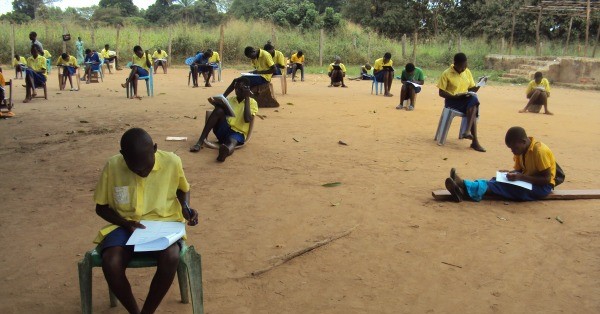Parents in Western Equatoria State, South Sudan, have expressed growing concerns over the escalating cost of school fees, calling on the government to take action.
Schools across the state reopened on 3 February 2025, but many families say they are struggling to afford the fees required to keep their children in education.
Eva Barnaba, a resident of Yambio County, told Radio Tamazuj on Saturday that the financial burden is overwhelming for parents, particularly those with multiple children.
“Children want to learn, but the cost is too high. Paying for first, second, and third terms is a huge challenge, especially for parents with many children. Some of us don’t know where to get the money,” she said.
Francisca Poni, a police officer and mother, revealed that she has not received her salary for 15 months, leaving her unable to pay school fees. She urged the government to engage with private schools to reduce costs.
“Every year, school fees increase. I want my children to study, but when I take 10,000 SSP to register my child, they tell me to pay the full amount. I am a widow, and they should allow partial payments,” Poni said.
Why are fees so high?
Gaaniko Simon, a teacher at ABC Primary School in Yambio County, explained the reasons behind the high fees charged by private schools.
“For nursery pupils, for charge 50 USD per term, while primary pupils from Primary 1 to 8 pay 100 USD. This is because nursery children receive porridge at school, and primary students get lunch,” he said.
Simon also highlighted additional operational costs faced by schools, including fees paid to the Ministry of Commerce and the State Revenue Authority.
“We also hire teachers from neighbouring countries and cover their food and accommodation costs,” he added.
Government response
Western Equatoria’s Acting Governor, Daniel Badagbu Rimbasa, reiterated that public schools in the state offer free education, as mandated by President Salva Kiir.
“We have two systems: private schools, which charge fees, and public schools, which are free. In Yambio, we have Yabongo, Nabima, Nangkpangau Primary School, and Yambio Secondary School offering free education,” he said.
Badagbu acknowledged the concerns raised by parents and pledged to engage with private school owners to explore ways to reduce costs.
“Our role as the government is to collect taxes to pay public school teachers. However, we have no control over private school fees. We will, however, discuss with them ways to reduce the cost,” he assured.
The issue of rising school fees has sparked a broader debate about access to education in the state, with many parents calling for greater government intervention to ensure affordability for all families.




